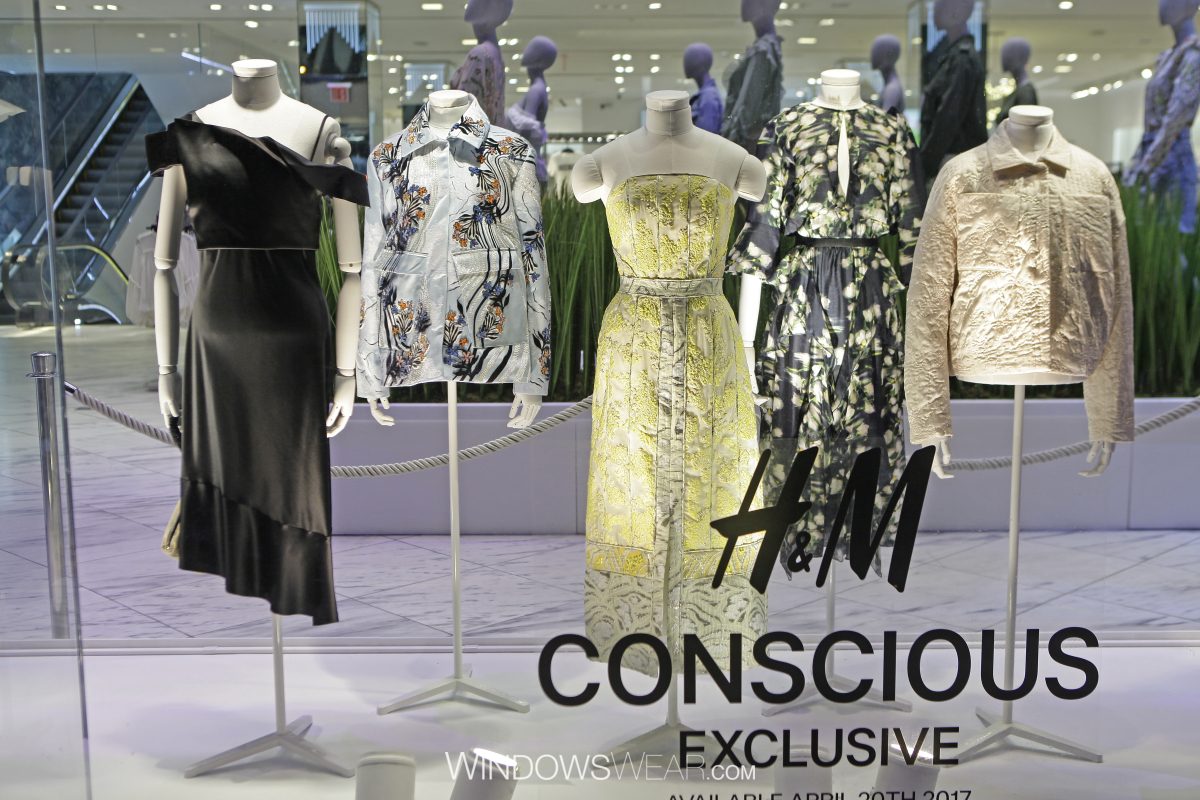On April 22nd, we celebrated Earth Day, but sadly, the Earth is suffering because of the fast fashion companies and the bad industry practices. Not only is the constant garbage generated by old and bad quality clothes an impact on the environment, but so is the massive wastes of water from production and even the abuse involved in manufacturing leather and fur luxury pieces. Fortunately, some brands started taking conscious steps against this problem and they are trying little by little, to make it easier for our planet.
Levis
One of the most aggressive processes in the fashion industry is denim manufacturing, but Levi Strauss & Co. has saved 1 billion liters of water by reducing the water used in garment finishing by up to 96 percent. They improved their sustainability by probing deeper into the environmental impacts of cotton in key growing regions, the apparel production and distribution in a range of locations, and consumer washing and drying habits in key markets. This has motivated costumers to wear a pair of jeans 10 times before washing, so American consumers can reduce their water and climate change impact by 77 percent, U.K. and French consumers by 75 percent and Chinese consumers by 61 percent.


H&M
Since fast fashion brands generate a lot of wastes year by year, H&M offers costumers discounts in exchange for old clothes. Once they drop off at a store they collect and sort clothes into three categories: Re-wear clothing that can be worn again and will be sold as second-hand clothes, Reuse old clothes and textiles that will be turned into other products, such as cleaning cloths, and Recycle everything else turned into textile fibers, and used for things like insulation. Since launching the garment collecting initiative in 2013, they have gathered more than 55,000 tons of garments to give new life to; thats more fabric than in 270 million t-shirts.



Rag & Bone
Joining H&M, this American fashion label has been committed to sustainability and denim recycling since the organization launched in 2006 and now they are promoting a campaign launched in October 2017 called the Blue Jeans Go Green Program. In a statement made, Marcus Wainwright, Chief Executive officer, founder and creative director of Rag & Bone said, Now, more so than ever, each and every one of us has a responsibility to do our part to protect our environment. The Blue Jeans Go Green Initiative is making great strides in helping brands make a difference and we are honored to be launching this Denim Recycling Program. Honestly, I am intrigued to see if any unwanted Rag & Bone jeans are dropped off, but either way, it is a step in the right direction for our brand.


Stella McCarney
She was one of the first designers to take control of sustainability; now her company embraces it from production to the runway as a successful business model.
Fashion is an industry that makes a significant impact on the planet. Its not just cool clothes and trends, she said in a release, Every single day, myself and my entire team are challenging ourselves and the industry: What can we do better?
We know how important recycling and re-using is, but she is taking this philosophy further. All Stella McCartney stores, offices and studios in the UK are powered by wind energy, and abroad they use renewable energy to power their stores and offices, not to mention that 45% of their operations are run on 100% renewable, green energy.
Among the Stella McCartney eco-friendly products, we can find a sustainable eyewear collection made from over 50% natural and renewable resources using raw materials from natural origins such as castor-oil seeds and citric acid.



Fur-Free
Animals also are part of our planet and they are huge fashion victims because of fur and leather products. Several brands have decided to go Fur-Free, and the last one to join the group in this amazing movement is Gucci’s Chief Executive officer Marco Bizzarri, that revealed the Italian luxury brand will not use any fur in his collections.
Gucci going fur-free is a huge game changer. For this powerhouse to end the use of fur because of the cruelty involved will have a huge ripple effect throughout the world of fashion. A staggering 100 million animals a year still suffer for the fur industry, but that can only be sustained for as long as designers continue to use fur and consumers purchase it. So we commend Gucci’s compassionate decision, and for helping to ensure that the future of fashion is fur-free. Said Kitty Block, president of Humane Society International.
Alongside Gucci, these fashion brands declared to be Fur-Free: Armani, Bottega Veneta, Calvin Klein, Hugo Boss, Kate Spade, Lacoste, Ralph Lauren, Tommy Hilfiger, Vivenne Westwood and John Galliano.



We all love fashion and there is nothing wrong with that, but this is an invitation to think beyond that moment of buying something, not just if it’s going to last, but also the way it has been produced and how big the impact of the pieces that we are wearing have on our planet.

